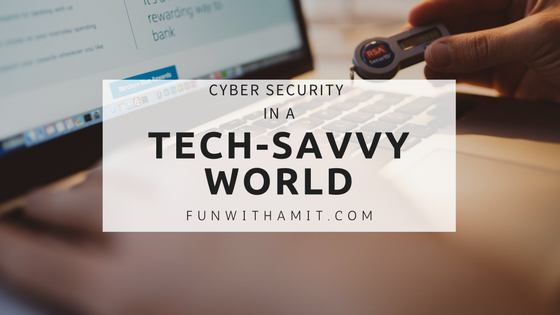Last week, l received about 3-4 emails from Apple advising me to reset my password as per my request. That made me wonder why and what happened. And this week Twitter announced for every user to change passwords. This triggered an idea for me to pen my thoughts about Cyber security for this month’s blog.
Recent advancements in technology have made cyber security a top priority for many individuals and businesses. Everyday more people are using smartphones and computers to purchase items online and store sensitive information. You might remember, In May 2017 the world’s largest ransomware scam took place on computers and businesses around the globe. The National Health Service was hit the hardest in the 2017 ransomware attack. The attack was an example of how all of us should be aware of our sensitive information online. Here are some of the most common yet simple things that we can follow to ensure that our information is safe.
Up-To-Date Software
A response to the ransomware attack was a software update from Microsoft. The update disabled the attackers from accessing the computer’s information. Turn on your devices automatic update feature. Any piece of technology that holds sensitive information should be updated frequently. Updates keep hackers out and fixes minor bugs on that device for a smoother interface. There is another debate that updates on cell phones generally slow the devices, but I think I can live with little slowness over risking the security.
Password Management
Many people get into the tendency of using the same password for every account they make on a website. This is a very easy alternative to having to remember what passwords you have for each profile you created. I think most of us who deal with multiple applications end up creating our own password management systems whether it’s capturing in some notepad or OneNote or storing it in Word or excel document. Not a very secure way to manage the passwords.
Fortunately, there is software that you can install that will create and store uniquely complex passwords for all your accounts online. If you decide not to use a password management software here are some things to consider when making a password.
- Use a variety of letters, numbers, and special characters.
- Try to make your password 20 characters long.
- Frequently update your password about every 6 months.
Anti-Virus Software
Installing anti-virus software on your computer is key in making sure your computer is safe from malicious malware. Both Mac and Windows offer free antivirus software that you can apply to your personal computer. Once the anti-virus software is installed you can set it up to have automatic scanning or manual scanning of your computer. Once the malware is identified, the software will either ask you if you want to “clean” it or do it automatically without your permission.
Bring In The Back-Up
Another habit to get into for all your devices is to consistently back them up. Backing up your data will save your sensitive information so if you were to be hacked and your device compromised you still have your data stored.
